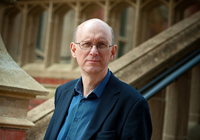The life of a festival director is one of constant motion. Regularly seeing art at home and abroad is one of the most appealing parts of the job (as anyone who has never worked as a festival director will tell you), but to those accustomed to pre-dawn flights, the threat of deep vein thrombosis, five shows a day, budget crunching, sponsorship courting, box office calculations and promotion drives, the culture of event organising requires more stamina than glamour. Yet with three high-profile manoeuvres currently on the international festival circuit, these energetic jobs never seem to lose their appeal.
 Last week brought news that the 2013 Dublin Fringe Festival will mark the fifth and final programme from Director Róise Goan, who was appointed in 2008. This follows the previous week’s announcement that Fergus Linehan has been appointed the director designate of the Edinburgh International Festival, and precedes the announcement of the new director of Belfast Festival at Queen’s, which is expected later this week.
Last week brought news that the 2013 Dublin Fringe Festival will mark the fifth and final programme from Director Róise Goan, who was appointed in 2008. This follows the previous week’s announcement that Fergus Linehan has been appointed the director designate of the Edinburgh International Festival, and precedes the announcement of the new director of Belfast Festival at Queen’s, which is expected later this week.
Goan has had a remarkable tenure at the Fringe, during a time otherwise marked by scarcity, by mastering a vexed conundrum: doing more with less. When a much-needed title sponsorship with Absolut could have compromised its identity – turning it into the Absolut Fringe for four years – the festival seemed to reassert Dublin as its main stage and principal concern, while also reaching out to participants from far beyond the capital. Nurturing emerging independent Irish artists, incorporating unusual venues and fostering captivating public displays, such as Macnas’s processions or Fergal McCarthy’s Liffeytown and No Man’s Land installations, the festival also saw companies such as ANU, The Company, THEATREclub and Willfredd Theatre create homegrown festival highlights. When the Spiegeltent, a long-time fixture of the festival, was discontinued, nobody seemed to notice. Last year’s box office for the festival was one of its most successful and through various initiatives, from Fringe Lab to Turnaround to Forest Fringe, it has extended its presence throughout the calendar.
“It has been an extraordinary privilege to work with such a brilliant team, committed board, courageous funders and most especially with a wide range of remarkably talented artists at Dublin Fringe Festival,” Goan said. “I will miss them hugely but after five great years the time has come for me to take on new challenges and pursue new ventures both at home and internationally.”
 For an illustration of where such ventures may take someone, Fergus Linehan’s career might offer some pointers. In 2004, he departed the Dublin Theatre Festival, where he had ascended from General Manager to Deputy director to Chief Executive and Artistic Director, to run the Sydney Festival until 2009. Since then, he has divided his time between Sydney and London, as Head of Music at Sydney Opera House, director of the pop music and digital art festival Vivid LIVE, and a sort of freelance a cultural scout – he directs Warehouse Arts, which provides artistic programme to a range of arts organisations, and has an evocatively named tumblr account, Festival Truffle Pig.
For an illustration of where such ventures may take someone, Fergus Linehan’s career might offer some pointers. In 2004, he departed the Dublin Theatre Festival, where he had ascended from General Manager to Deputy director to Chief Executive and Artistic Director, to run the Sydney Festival until 2009. Since then, he has divided his time between Sydney and London, as Head of Music at Sydney Opera House, director of the pop music and digital art festival Vivid LIVE, and a sort of freelance a cultural scout – he directs Warehouse Arts, which provides artistic programme to a range of arts organisations, and has an evocatively named tumblr account, Festival Truffle Pig.
Linehan succeeds Jonathan Mills full time as Director of the Edinburgh International Festival in October 2014 and will deliver his first Festival in 2015, allowing time for the adequate planning of, arguably, the world’s most respected arts festival. Linehan’s appointment may signal a change of emphasis for the 65-year-old event, established in the wake of World War II to “provide a platform for the flowering of the human spirit”, and which has long resembled the fusty uncle to the sprawling Edinburgh Fringe. Although he has reassuring bona fides as a programmer of theatre, opera and classical music, as well as the necessary business acumen – the Sydney Festival almost doubled its turnover during his tenure – some media attention has been paid to his interest in popular culture and music. Linehan’s comments about the job so far, experienced in the arts of ingratiation and encouragement, have been a careful balance of safe-hands continuity (“I look forward to safeguarding the founding principles of the festival in ways which are engaging and relevant to all.”) and forward momentum (“You want to win the public's trust, particularly in Edinburgh, which has such a strong history: but at the same time, people do expect you to progress.")
 Such sentiments might seem particularly salient to the next director of the Belfast Festival at Queen’s, who is the arts producer and consultant, Richard Wakely, the director of RW International Arts. In recent years the Belfast festival has clawed its way back from financial straits through continuing Ulster Bank sponsorship, experienced political pressure exerted on the content of its programme, and last year saw its most recently appointed director, Mark Prescott, depart after less than six months in the job (Shan McAnena stepped in to oversee last year’s 50th anniversary).
Such sentiments might seem particularly salient to the next director of the Belfast Festival at Queen’s, who is the arts producer and consultant, Richard Wakely, the director of RW International Arts. In recent years the Belfast festival has clawed its way back from financial straits through continuing Ulster Bank sponsorship, experienced political pressure exerted on the content of its programme, and last year saw its most recently appointed director, Mark Prescott, depart after less than six months in the job (Shan McAnena stepped in to oversee last year’s 50th anniversary).
One question tends to dog directors as successful as Linehan and Goan, and it is often asked of their festivals too: Where do they go from here? It is a mark of their talents, ambition and inspiration, that they always seem to find an answer.